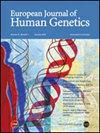Clinical utility of DNA-methylation signatures in routine diagnostics for neurodevelopmental disorders
IF 4.6
2区 生物学
Q2 BIOCHEMISTRY & MOLECULAR BIOLOGY
引用次数: 0
Abstract
Disease-causing variants in chromatin regulator genes cause many developmental disorders. DNA methylation (DNAm) signatures are emerging as a diagnostic tool to identify disease causes and classify variants of uncertain significance (VUS). This study evaluates their diagnostic utility in a routine clinical setting. We retrospectively analyzed 298 patients from the Erasmus MC who underwent DNAm signature testing using the commercial EpisignTM platform between February 2019 and June 2023. The cohort included 75 targeted analyses for follow-up on prior genetic findings and 223 complete analyses for cases unsolved after prior diagnostic testing. In the 75 targeted analyses, DNAm signatures were positive in 18% (10/55) for (VUS), 91% (10/11) for likely pathogenic variants, and 89% (8/9) for pathogenic variants. In 223 complete analyses, a disease-linked DNAm signature was observed in 9.0% (20/223), with a (partial) phenotypic match in 55% of those (11/20) but no match in 45% (9/20). In 81.8% (9/11) of those DNAm signature positive cases with a phenotypic match, retrospective analysis identified a causative DNA variant or confirmed independently an imprinting disorder that was unidentified previously, providing valuable diagnostic insights with an overall diagnostic yield of 4.0% (9/223) for these molecular confirmed cases. In conclusion, this study supports the clinical utility of DNAm signatures to assist in interpreting and classifying VUS, but also as a complementary tool when prior genetic testing, including exome sequencing, failed to provide a diagnosis.

dna甲基化特征在神经发育障碍常规诊断中的临床应用。
染色质调节基因的致病变异导致许多发育障碍。DNA甲基化(DNAm)特征正在成为识别疾病原因和分类不确定意义变异(VUS)的诊断工具。本研究评估了它们在常规临床环境中的诊断效用。我们回顾性分析了来自Erasmus MC的298名患者,他们在2019年2月至2023年6月期间使用商业EpisignTM平台进行了DNAm特征测试。该队列包括75项针对既往遗传发现的随访分析和223项针对既往诊断检测后未解决病例的完整分析。在75项有针对性的分析中,DNAm特征在(VUS)中为18%(10/55),在可能的致病变异中为91%(10/11),在致病变异中为89%(8/9)。在223个完整的分析中,9.0%(20/223)观察到与疾病相关的DNAm特征,其中55%(11/20)具有(部分)表型匹配,但45%(9/20)不匹配。在81.8%(9/11)表型匹配的DNA特征阳性病例中,回顾性分析发现了一种致病DNA变异或独立确认了一种以前未发现的印迹疾病,为这些分子确诊病例提供了有价值的诊断见解,总诊断率为4.0%(9/223)。总之,本研究支持DNAm特征的临床应用,以帮助解释和分类VUS,但也作为一种补充工具,当先前的基因检测,包括外显子组测序,未能提供诊断。
本文章由计算机程序翻译,如有差异,请以英文原文为准。
求助全文
约1分钟内获得全文
求助全文
来源期刊

European Journal of Human Genetics
生物-生化与分子生物学
CiteScore
9.90
自引率
5.80%
发文量
216
审稿时长
2 months
期刊介绍:
The European Journal of Human Genetics is the official journal of the European Society of Human Genetics, publishing high-quality, original research papers, short reports and reviews in the rapidly expanding field of human genetics and genomics. It covers molecular, clinical and cytogenetics, interfacing between advanced biomedical research and the clinician, and bridging the great diversity of facilities, resources and viewpoints in the genetics community.
Key areas include:
-Monogenic and multifactorial disorders
-Development and malformation
-Hereditary cancer
-Medical Genomics
-Gene mapping and functional studies
-Genotype-phenotype correlations
-Genetic variation and genome diversity
-Statistical and computational genetics
-Bioinformatics
-Advances in diagnostics
-Therapy and prevention
-Animal models
-Genetic services
-Community genetics
 求助内容:
求助内容: 应助结果提醒方式:
应助结果提醒方式:


